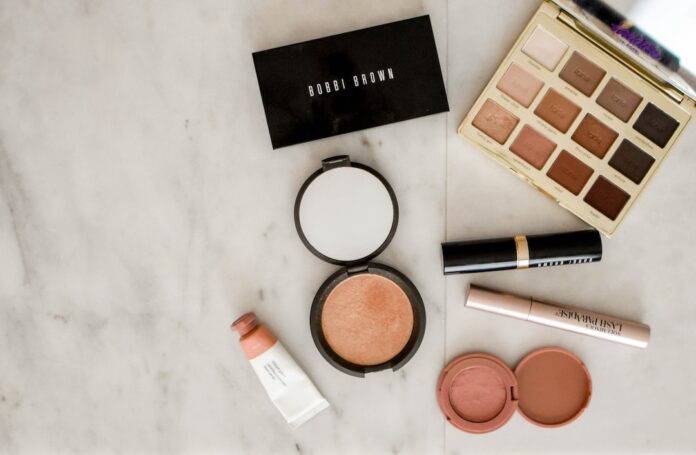Introduction
Dark spots on your skin can be an unpleasant sight, and many people want to know what works for dark spot correctors and what doesn’t. The good news is that there are a variety of treatments available to help reduce the appearance of dark spots and other discolorations. In this guide, we’ll discuss the different types of dark spot correctors and their effectiveness, so you can make an informed decision on which one is best for you.
What Causes Dark Spots?
Before we dive into the dark spot corrector guide, let’s first take a look at what causes dark spots. Dark spots are a result of the overproduction of melanin in certain areas of the skin. This can be caused by sun exposure, hormonal changes, skin trauma, age, and other factors.
Top Dark Spot Corrector Treatments
Now that you know what causes dark spots, let’s take a look at some of the top treatments for dark spots.
1. Laser Treatments
Laser treatments are one of the most effective options for treating dark spots. Lasers can target specific areas of the skin, reducing the amount of melanin in the area and giving you a clearer complexion. Although laser treatments are more expensive than other treatments, they are one of the most effective ways to remove dark spots.
2. Chemical Peels
Chemical peels are another popular treatment for dark spots. Chemical peels involve applying a chemical solution to the skin, which helps to remove the outer layers of skin and reduce the appearance of dark spots. Chemical peels can be done at home or at a dermatologist’s office, and they are generally less expensive than laser treatments.
3. Retinoids
Retinoids are a type of vitamin A derivative that can help reduce the appearance of dark spots. Retinoids can be applied topically or taken orally, and they are generally considered safe for most people.
4. Natural Remedies
There are also some natural remedies for dark spots, such as lemon juice, aloe vera, potato juice, and apple cider vinegar. These natural remedies may not be as effective as the other treatments, but they can help reduce the appearance of dark spots without the use of chemicals or lasers.
What Doesn’t Work
Now let’s take a look at some of the treatments that don’t work for dark spots.
1. Sun Exposure
One of the most common treatments for dark spots is sun exposure, but this can actually make the dark spots worse. Sun exposure can increase the amount of melanin in the skin, making the dark spots more pronounced. It’s best to avoid the sun and wear sunscreen when you’re outside.
2. Over-the-Counter Creams
Over-the-counter creams and gels are not always effective for treating dark spots. These creams and gels may contain harsh chemicals that can irritate the skin and make the dark spots worse. It’s best to avoid over-the-counter creams and gels and instead stick to the treatments listed above.
Conclusion
Dark spots can be an annoying problem, but with the right treatments, you can reduce the appearance of dark spots and get a clearer complexion. The treatments listed above are some of the most effective options for treating dark spots, and they are generally considered safe for most people. Avoid sun exposure and over-the-counter creams and gels, as these can make the dark spots worse. With the right treatments, you can reduce the appearance of dark spots and get a clearer complexion.Protect your skin from the sun by using a broad-spectrum sunscreen with a minimum of SPF 30. Wear protective clothing such as a hat and sunglasses when outdoors. Avoid tanning beds and sunlamps.
Use topical creams and serums that contain ingredients such as hydroquinone, retinoids, kojic acid, and azelaic acid. These
Photo by Rune Enstad on Unsplash
ingredients help to reduce the appearance of dark spots and even out skin tone.
Look for products that contain natural skin-lightening ingredients such as licorice, mulberry, bearberry, and vitamin C. These can help to fade dark spots without irritating the skin.
Exfoliate your skin regularly to help remove dead skin cells and reduce the appearance of dark spots. Use a gentle exfoliating scrub or an at-home chemical peel.
See a dermatologist for professional treatments such as laser therapy, chemical peels, microdermabrasion, and light therapy. These treatments can help to reduce the appearance of dark spots.Use a mild cleanser and moisturizer with active ingredients such as vitamin C, hydroquinone, and retinol to help lighten dark spots.
Apply sunscreen on a daily basis to protect your skin from sun damage and prevent further dark spots from forming.
Include plenty of antioxidants in your diet to help reduce the appearance of dark spots. Foods such as berries, green tea, and dark leafy greens are all good sources of antioxidants.
Consider using a product with skin-lightening ingredients such as kojic acid, arbutin, and niacinamide to help lighten dark spots.Berries such as blueberries, cranberries, strawberries, and raspberries are high in antioxidants and can help protect your skin from damage caused by free radicals.
Green tea is also a powerful antioxidant that can help prevent cell damage and reduce inflammation. It can also help reduce redness and discoloration.
Dark leafy greens like spinach and kale are rich in vitamins and minerals, which can help nourish the skin. They are also packed with antioxidants that can help protect your skin against damage from free radicals.
Kojic acid is a by-product of the fermentation process of malting rice. It is a skin-lightening agent and can help reduce discoloration and dark spots.
Arbutin is a natural skin-lightening agent derived from the bearberry plant. It can help lighten dark spots and can help protect the skin from sun damage.
Niacinamide is a form of vitamin B3. It can help lighten dark spots and reduce redness and discoloration. It can also help strengthen the skin’s natural barrier and protect it from environmental damage.It can also help improve the look of wrinkles and fine lines, as well as reduce inflammation and puffiness.It can also help boost collagen production and provide antioxidant protection, which can help keep your skin looking youthful and radiant. Additionally, niacinamide can help regulate sebum production, which can help reduce the appearance of acne and blemishes.Niacinamide is a great skincare ingredient for all skin types, as it helps to improve the skin’s overall health and appearance. Whether you have dry, oily, or combination skin, niacinamide can help improve the look and feel of your skin.Niacinamide helps to reduce inflammation, which can help to soothe redness and irritation. It also helps to strengthen the skin’s barrier and protect it from environmental aggressors. Additionally, niacinamide can help to even out the skin tone and reduce the appearance of dark spots and hyperpigmentation.
Niacinamide also helps to stimulate collagen production, which can help to reduce the appearance of wrinkles and improve the skin’s elasticity. Additionally, niacinamide can help to reduce the appearance of pores and brighten the skin.Finally, niacinamide can help to protect the skin from environmental damage, such as UV rays, free radicals, and pollutants.It can also help to reduce redness and irritation, making it an ideal ingredient for those with sensitive skin.Additionally, niacinamide can help to reduce inflammation and improve the skin’s overall texture.All in all, niacinamide is an excellent ingredient for skin care, as it can help to improve the overall appearance of the skin and protect it from environmental damage.




